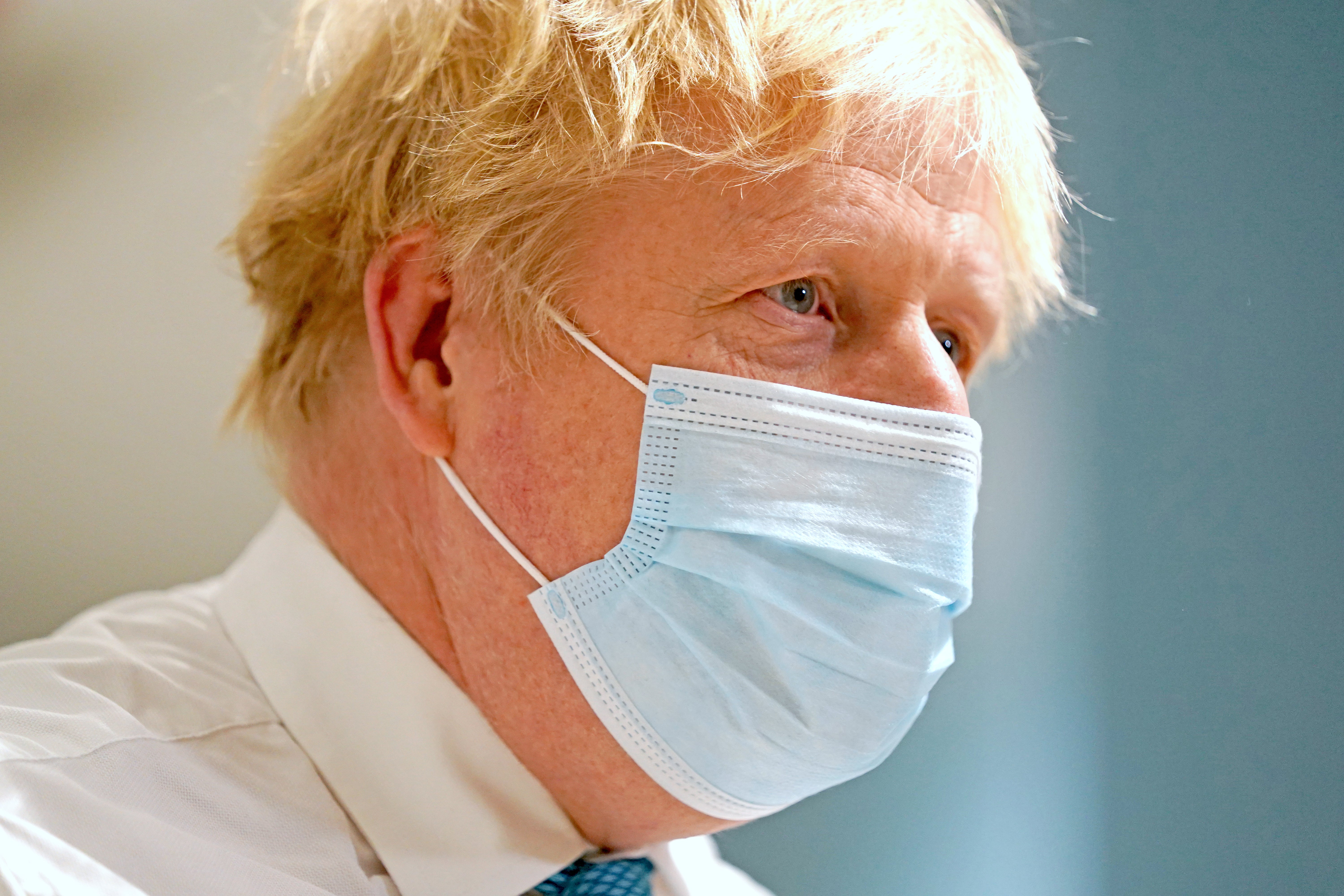Johnson signals early end to Covid self-isolation laws
Boris Johnson said his strategy for living with Covid will be published later this month.

Your support helps us to tell the story
From reproductive rights to climate change to Big Tech, The Independent is on the ground when the story is developing. Whether it's investigating the financials of Elon Musk's pro-Trump PAC or producing our latest documentary, 'The A Word', which shines a light on the American women fighting for reproductive rights, we know how important it is to parse out the facts from the messaging.
At such a critical moment in US history, we need reporters on the ground. Your donation allows us to keep sending journalists to speak to both sides of the story.
The Independent is trusted by Americans across the entire political spectrum. And unlike many other quality news outlets, we choose not to lock Americans out of our reporting and analysis with paywalls. We believe quality journalism should be available to everyone, paid for by those who can afford it.
Your support makes all the difference.Boris Johnson has signalled that laws requiring people in England with Covid-19 to self-isolate will be lifted within weeks.
The Prime Minister said he will present his plan for “living with Covid” when Parliament returns from a short recess on February 21.
And he indicated that, as long as the data remains positive, the legal duty to self-isolate will be lifted a month earlier than planned.
At Prime Minister’s Questions he said: “It is my intention to return on the first day after the half-term recess to present our strategy for living with Covid.
“Provided the current encouraging trends in the data continue, it is my expectation that we will be able to end the last domestic restrictions – including the legal requirement to self-isolate if you test positive – a full month early.”
There were 11,471 patients in hospital in England with Covid-19 on February 8, NHS figures show.
This is down 11% on the previous week but still higher than levels before Christmas.
However just 385 patients were in mechanical ventilator beds, the lowest number since last July.
Covid-19 cases in England currently average just under 64,000 a day, the lowest since mid-December, though this only includes people who have reported a positive test result and does not reflect the prevalence of the virus across the whole population.
Professor Peter Openshaw, who advises the Government on Covid through the New and Emerging Respiratory Virus Threats Advisory Group (Nervtag), said he would be “very reluctant” to suggest this was the end of Covid, adding it was “still a very nasty virus”.
He told BBC Radio 4’s The World at One: “It would be wholly wrong to say that the pandemic is in any way over. We don’t know what’s around the corner, there could be another variant, perhaps based on Delta or something else with higher pathogenicity, which could come back to bite us anytime, and I’m pretty sure that next winter we’re going to see it back.”
He said he was “very concerned that the number of cases remains very high” and he thought that as a population we had “just become rather used to these rather stunning statistics” of 300 deaths per day.
He added: “I think we’re all really looking forward to being able to get back to some sort of normality and we know Omicron is generally fairly mild in people who have immunity and most adults have immunity now, either because we’ve been vaccinated or because we’ve been infected or both.
“So, we’re going in the right direction, but this doesn’t seem very cautious.”
The Prime Minister’s announcement came as Paul Hunter, professor of medicine at the University of East Anglia, said the UK is “past the point” where vaccinating young, healthy children against Covid-19 will do any good.
Experts from the Joint Committee on Vaccination and Immunisation are expected to present their decision on the issue shortly.
Prof Hunter told BBC Radio 4’s Today programme infection rates in children are “falling really quickly at the moment”, adding: “So I think in many ways we’re past the point where vaccines are actually going to make much difference.”
He said jabs were given to older children to hopefully protect them from interruptions to their schooling, but added: “We haven’t seen that vaccines have actually done a huge amount to stop these interruptions, so I think the benefits are marginal, and it’s probably too late because most kids have already had Omicron.”